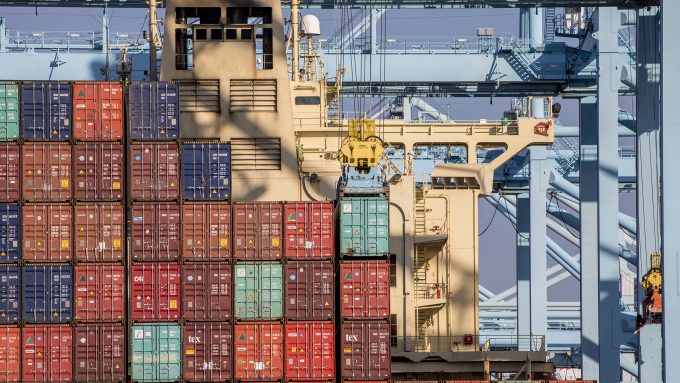Shipping alliance shake-up will make waves during new contract season
With the ocean shipping alliances set to undergo major upheaval, the upcoming contract negotiation season ...
CHRW: DOWN AND RIGHTLY SOXOM: SOLID AAPL: SUPPLY CHAIN PLANNING AAPL: INVENTORY FOCUSWMT: RESHORINGUPS: THE HANGOVERUPS: PRICING AMAZON RISKGXO: LUXURY PARTNERSHIP EXTENDEDUPS: SCS PERFORMANCEUPS: EFFICIENCY SOUGHTUPS: CHANGESUPS: OUTLOOKUPS: EARNINGS BEATTSLA: CFO ON TARIFFSTSLA: INVENTORY FOCUSUPS: TRADING UPDATE OUT SOONCHRW: NO SIGNS OF INFLECTION CHRW: EARNINGS BEAT
CHRW: DOWN AND RIGHTLY SOXOM: SOLID AAPL: SUPPLY CHAIN PLANNING AAPL: INVENTORY FOCUSWMT: RESHORINGUPS: THE HANGOVERUPS: PRICING AMAZON RISKGXO: LUXURY PARTNERSHIP EXTENDEDUPS: SCS PERFORMANCEUPS: EFFICIENCY SOUGHTUPS: CHANGESUPS: OUTLOOKUPS: EARNINGS BEATTSLA: CFO ON TARIFFSTSLA: INVENTORY FOCUSUPS: TRADING UPDATE OUT SOONCHRW: NO SIGNS OF INFLECTION CHRW: EARNINGS BEAT

US-based container lessor CAI International is to invest $1.35bn on 700,000 new containers, anticipating rising demand due to the shortage resulting from the Red Sea crisis.
The funds will come from CAI’s owner, Japanese financier Mitsubishi HC Capital, and the new containers equate to 20% of CAI’s current inventory. And 10% will be reefers.
A spokesperson for Mitsubishi HC told The Loadstar: “We’re investing in new containers mainly due to the increased demand from the tension in Middle East that sees containerships avoid the Red Sea and Suez Canal.”
The spokesperson declined to disclose where the containers would be manufactured.
The investment is in line with Mitsubishi HC’s business strategy, announced in May, to step up investment in the container leasing business. At the time, it noted that bottlenecks caused by the Red Sea crisis and limited transits through the Panama Canal had led to increased container demand.
However, in a recent report, Container xChange stated that while container prices had surged in the early part of the Red Sea crisis, prices had since corrected as the peak season ended, while typhoons in East Asia had slowed container operations in key Chinese ports.
Prices have fallen by 25% year on year, from $3,012 in September 2023 to $2,525 last month, after peaking this year at $2,603 in July.
In January 2023, CAI, acquired by Mitsubishi HC for $1.1bn in June 2021, merged with another of the Japanese financier’s container leasing subsidiaries, Beacon Intermodal Leasing, acquired in November 2014, forming the world’s third-largest container lessor, with 3.24m teu.
UK consultancy Drewry estimates that 5.79 million teu of containers will be manufactured this year, the second-highest for output. Manufacturers CIMC, Dong Fang and Singamas have all reported surging orders in response to the Red Sea crisis.
Comment on this article